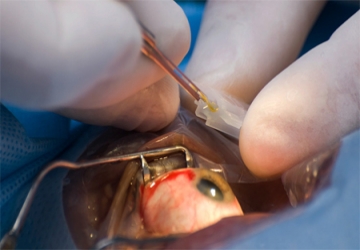After cataract surgery
By asking Dr. Muhammad Hantira - Honorary Assistant Professor - Department of Ophthalmology - Umm Al-Qura University - Saudi Arabia, explain to us
Cataract surgery is considered one of the most effective medical procedures today.
In fact, more than 3 million cataract surgeries are performed each year in the United States alone.
More than 971 percent of them succeed the first time, meaning no complications arise. Some recent developments may lead to higher success rates.
Dr. Hantira explained:
Although this experience differs from one person to another, here are some of the things most people face after cataract surgery:
As soon as the cataract surgery is over
• You may feel groggy as a result of local anesthesia. This is normal and will disappear completely quickly. The doctor will put antibiotic drops in your eye to prevent infection, and anti-inflammatory drops are applied to reduce eye swelling. You may also be provided with an eye pad.
• You can get prescription medications and instructions on caring for your eyes. A follow-up appointment (s) will be arranged and then you go home. The doctor may give you dark glasses that you use while you ride home in the car.
• You should relax and let your caregiver give you prescriptions. You will not be allowed to drive yourself.
• Avoid touching or rubbing the eyes or removing the protective covering.
• You may feel an sensitivity in your eye and invite you to scratch for a few days.
• You can also see some dark circles, but this will fade with time
• Resume your normal daily activities - except for driving - on the first day after the operation, unless your doctor tells you otherwise.
• Avoid lifting heavy objects, as this may increase pressure inside the eye
• Do not put cosmetics in your eyes until your doctor tells you to
• Your eye should recover completely within the first month.
• The brain will continue to learn to deal with the new lens that was implanted in your eye.
• If you suffer from dry eyes, you must return to the doctor so that he writes you suitable eye drops for you
• Go to a follow-up visit after a month. If you need surgery to remove the cataract in your other eye, it is appropriate to have it done once the first eye has healed.
• If you get a monofocal lens and haven't had surgery on the other eye, it's time to wear new glasses or contact lenses.
• Test your vision by participating in a variety of activities. You will get more results as your eyes interact with the brain
• It will take anywhere from 2-4 months to cope with this, and your feelings and your visual ability will improve dramatically.
• The doctor will ask to monitor your condition, especially if you suffer from a condition in your other eye
With us, you are in safe hands, and we wish you a speedy recovery
